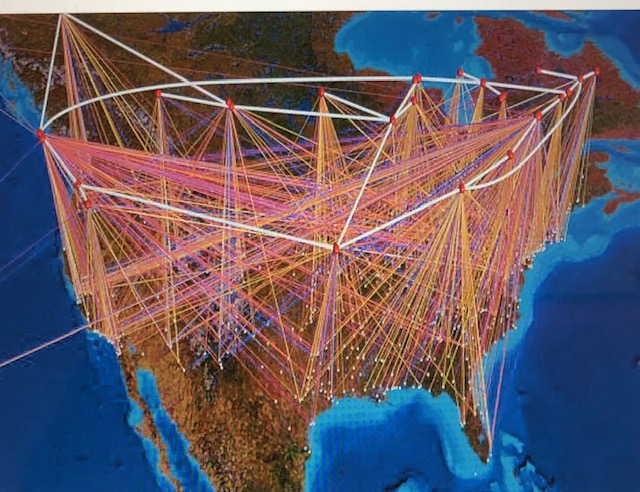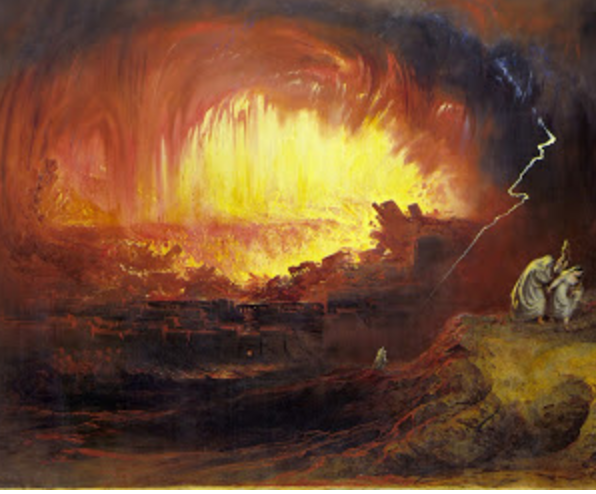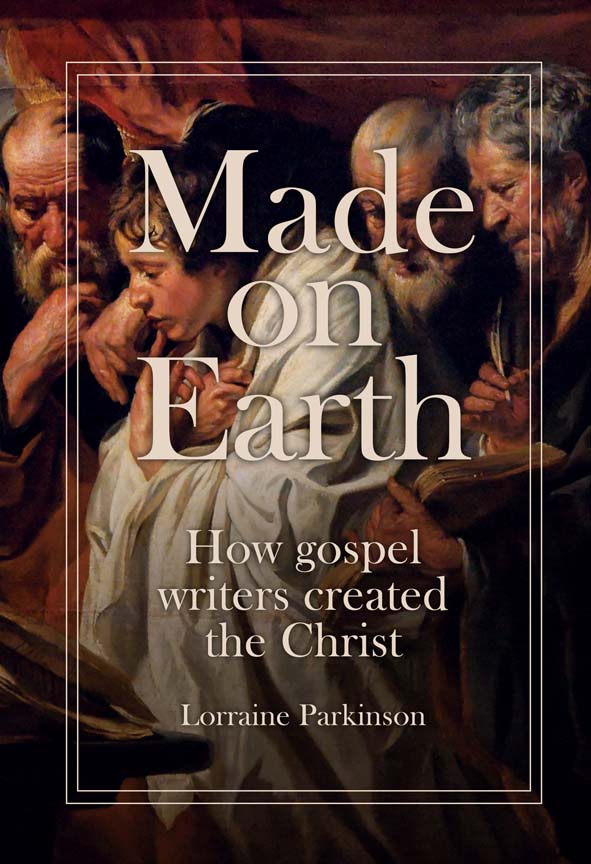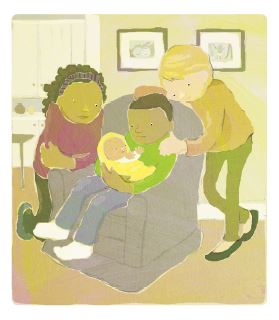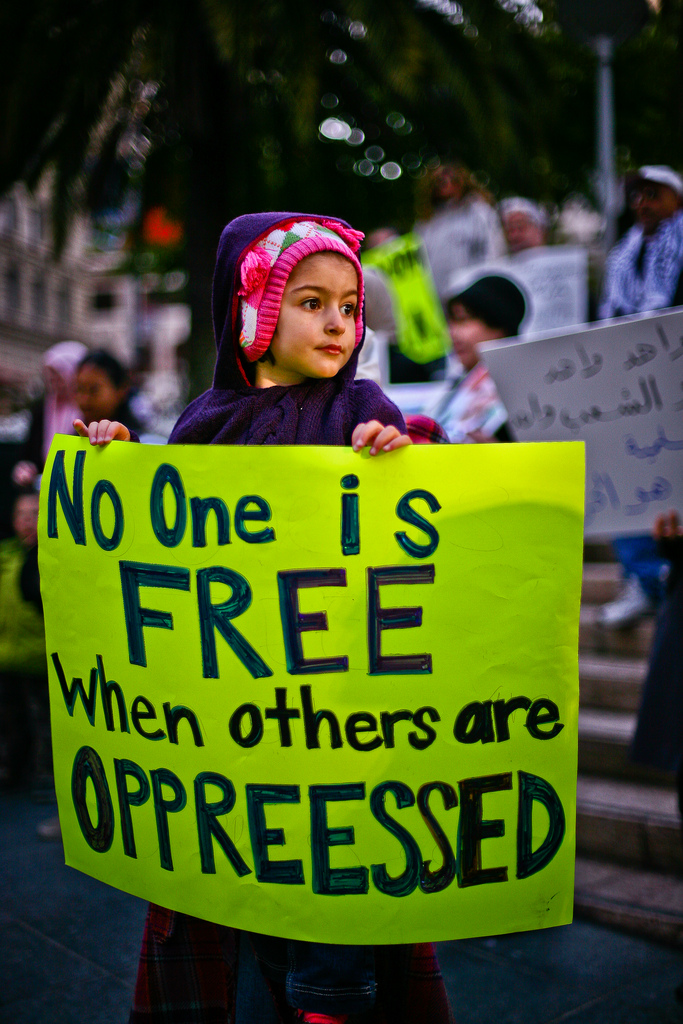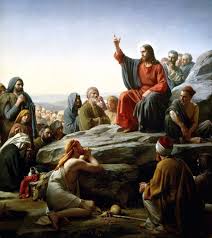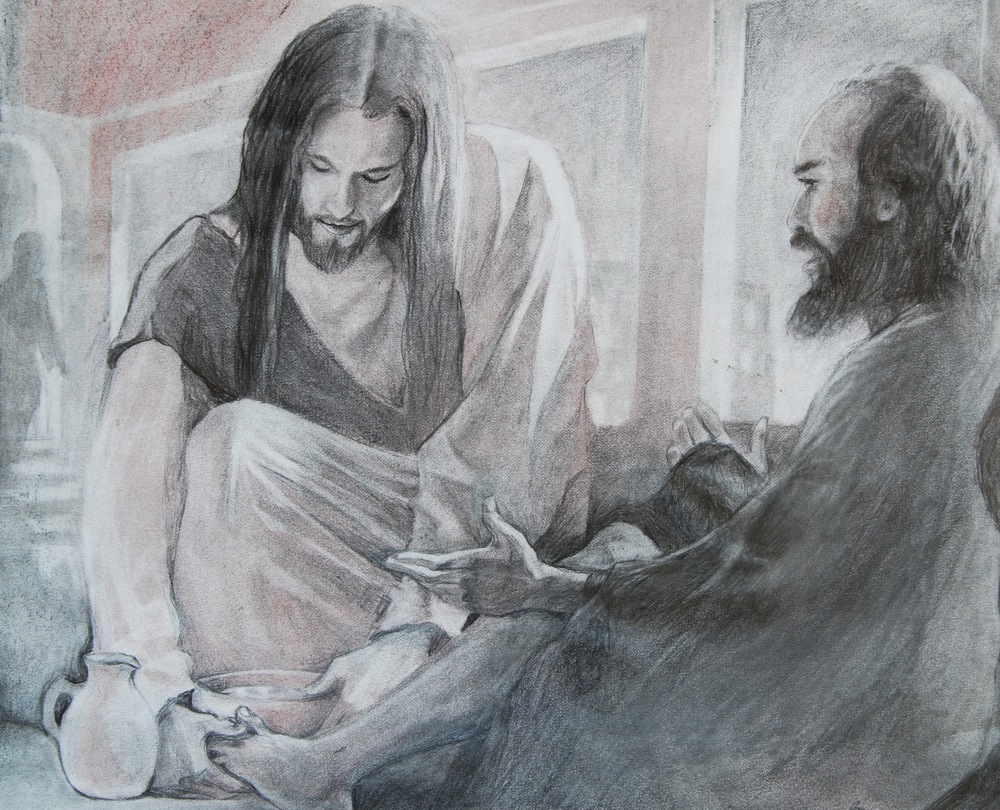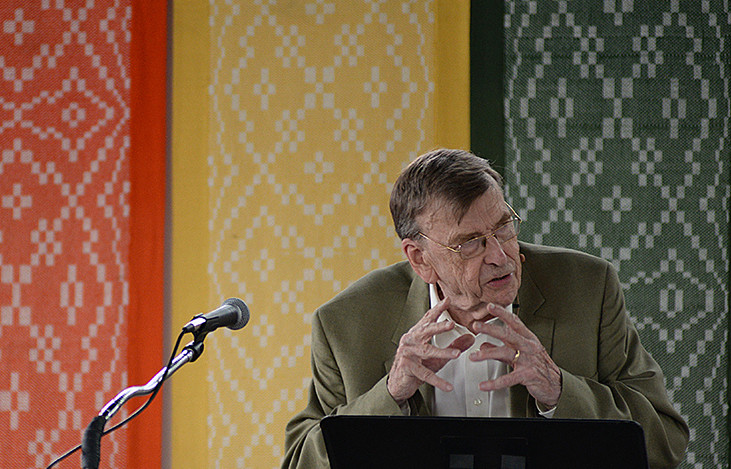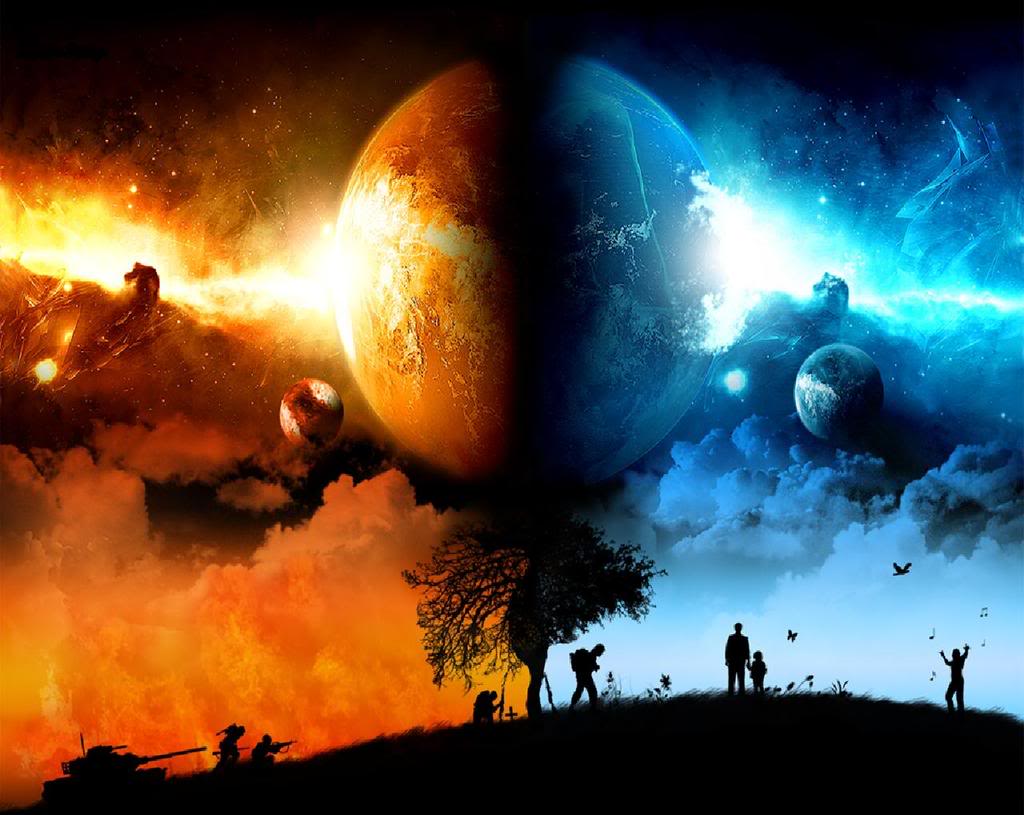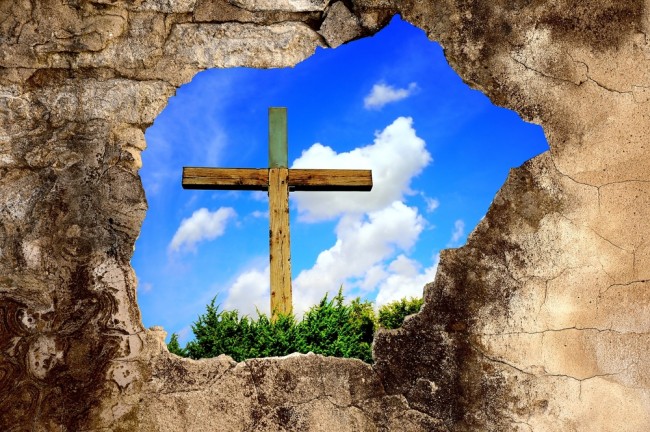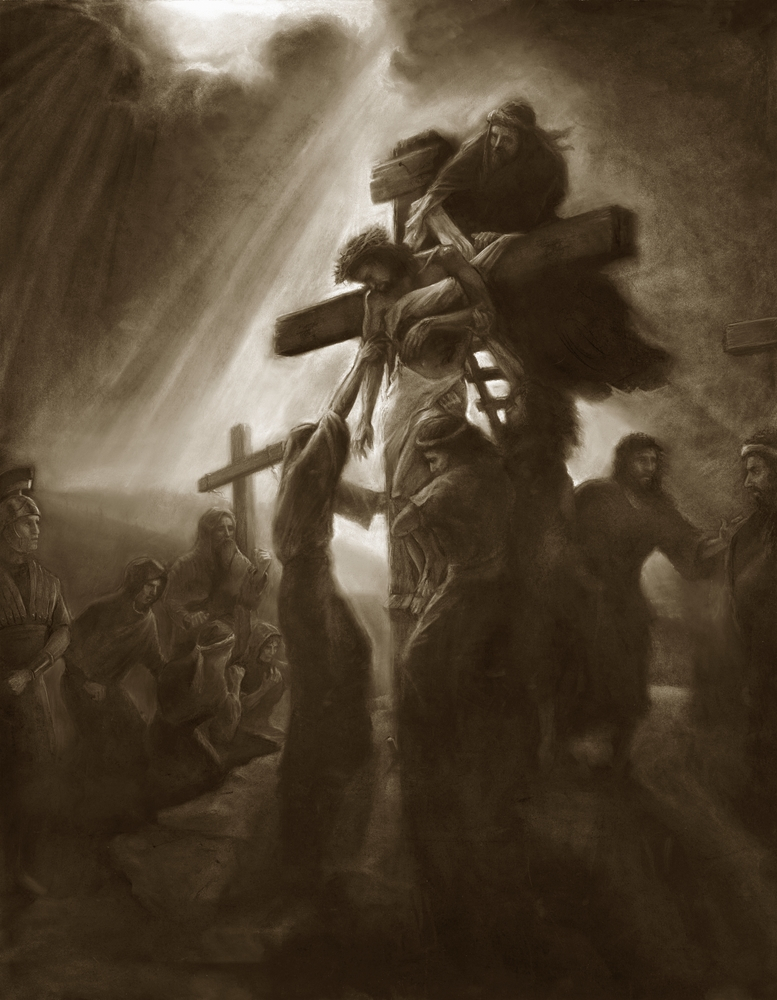Institutional religion has become vestigial enroute to extinction, having largely become a “non-prophet” organization.
People gather in churches around the world, week after week, and I wonder how often we stop to consider who God actually is.
We've been robbed of the power of the story of Sodom. It should be a strong companion to Matthew 25:31-46, which also gives dire warnings for those who do not serve Jesus by feeding the hungry, welcoming the stranger and the other Works of Mercy. It's a path that ends in destruction.
NEW TITLE RELEASE 21st January 2016
In this book Lorraine Parkinson sets out compelling reasons why the gospels may be found to have been ‘made on earth’. She builds a strong argument that each gospel was written to make a distinct case for Jesus as the Christ. She presents detailed evidence that the Christ of the gospels is the creation of Mark, Matthew, Luke and John, plus later editors. The sub-text of this book contends that by including teachings of Jesus alongside claims for him as Christ, gospel writers bequeathed to Christianity two contradictory gospels – the gospel of Jesus and the gospel about Jesus.
Through service we find love and truth in action. When we serve with love and compassion, those whom we serve become brothers and sisters, not the others.
We know true joy when we experience the reality of God’s presence within. The word joy is used at Christmastime so often that it is almost synonymous with the season. When we have an inner awareness of the presence of God, we experience joy. When we celebrate the birth of Christ, we celebrate that living presence born on earth. Joyful day! God’s presence can be experienced in every moment of our lives when we become aware that the reality of God never changes; it is not dependent on circumstance or season.
Jesus taught that we should love everyone, even our enemies. In this age of multi-media information, we are made aware of all the reasons people can be difficult to love; loving everyone appears even more daunting than it must have two thousand years ago. However, if we remember that universal divine love exists within and flows throughout all creation, it becomes clear that our part is not to make ourselves love, but to allow love to flow through us at every opportunity. Every moment is an opportunity. Jesus was a pure channel for universal love; love flowed through him without interruption or corruption. The power of that pure love could be felt by all who opened their heart to the experience, and we can experience it as well if we open our hearts to the possibility.
We know what to do. The Universal Declaration of Human Rights begins: “Whereas the peoples of the United Nations have in the Charter reaffirmed their faith in fundamental human rights, in the dignity and worth of the human person and in the equal rights of men and women and have determined to promote social progress and better standards of life in larger freedom.” Unitarian Universalists claim the “inherent worth and dignity of all humanity.” Christians claim the Apostle Paul’s ecstatic revelation that “You are no longer Jew or Greek, no longer slave or freeborn, no longer ‘male and female.’ Instead you all have the same status in the service of God’s anointed Jesus.” Leviticus 19:18 says, “Love your neighbor as yourself.” Jesus said, “Love your enemies.”
I heard a contemporary hymn on Sunday morning during the Eucharist and fell in love with the melody. It was the “Untitled Hymn
From the Celebrating Mystery collection
THEME Two Faces of the One God –the One Life Force THOUGHTS FOR REFLECTION 1. Darkness is the womb of the light, nothingness the womb of all things.
Progressive Christianity asserts that God is present in each one of us. God is not far off but moves within each of our lives, providing energy and possibility; God’s presence in us and not imperfection is our deepest nature. In contrast to sin-based theologies, accenting original sin and human depravity, progressive Christianity affirms original blessing and the inherent divinity of each creature.
How do you account for / explain the different versions of the same event? To what extent does it matter in your understanding and experience of Jesus that the details that describe such a fundamental event in his life are not an agreed Gospel record across Mark, Matthew and Luke? Why did John ignore all the details of the baptism of Jesus?
Jesus called on people to change. Not just a little, but dramatically. The ‘kingdom of God’ is the term Jesus used to express his vision of a profound transformation of human beings and human institutions—social, political, economic and religious—to fully express the character and nature of God—a God of love. To accomplish this vision, Jesus worked toward the creation of a new kind of community dedicated to values of compassion, generosity, peace, and justice. He was creating a movement for change, a people engaged in a vast conspiracy of love.
When I am struggling, maybe with grief, or trying to sort out something difficult in my life, I often go to a special spot and quietly wait for the new sun to appear. It always makes a significant difference in my being when I do this. My load feels lighter. My fears often dissolve. My grief can be transformed into hope. Over the years I have thought of all kinds of metaphors that may explain this phenomenon. I am reminded that it is a new dawn, or a new day. No matter how painful or dark my situation seems to be, as that sun comes over the horizon everything in my life begins to look and feel different. The new sun symbolizes a new beginning for me. I feel I have gained a new perspective. My internal darkness has dissolved into new light and I am comforted.
The church as we know it came about when one group of believers was opposed by a dissenting group. Then it became necessary for each group to define their concepts of Christianity and to label all others heretics.
This past year, at my congregation on Cape Cod, we began to celebrate the seasons of the year as part of our affirmation
John Shelby Spong gives an introduction and brief explication of his 5 day lecture series hosted by the Department of Religion, in the Hall of Philosophy.
John Shelby Spong explains how the 4th Gospel creates a symbol from the presence of Christ's mother. This is the fourth lecture of a five lecture series.
John Shelby Spong continues his 5 day lecture series. He explains the colorful characters who hold dual purpose in the fourth Gospel.
John Shelby Spong concludes his five day lecture series by explaining the Crucifixion in the fourth Gospel. This event was hosted by the department of religion and took place on June 27, 2014.
John Shelby Spong explains the importance of reading the 4th Gospel with out being a literal. Hosted by the Department of Religion, this event is part 2 of 5 and was held on June 24, 2014.
For Christians grace is God’s gift of pardon. According to William Barclay the Greek word for grace was originally a military term. When an emperor came to the throne or celebrated a birthday, he would give his troops a donatirim (donation), which was a free gift that they had not earned; it was given out of the goodness of the emperor’s heart. This idea was picked up by the Christian scripture writers when they wrote about the grace of God. Grace is something that is unearned and undeserved – unmerited pardon.
For many Christians, a supernatural theistic God is a daily reality in their lives, but for many others, this kind of God is simply not there. They long to feel God’s presence and God’s love, but instead they experience emptiness and isolation. They worship God in church, but find that God is not present in the sanctuary. They pray fervently to God in private moments, but realize that their prayers often go unanswered. In the end, there is only silence.2 The biblical character of Job cried out to God in despair, “I cry to you God, but you do not answer. I stand before you, and you don’t even bother to look.”3
Can we actually believe that because Eve persuaded Adam to eat a forbidden apple the entire human race is doomed to hell? Can we truly believe that for several thousand years there was no chance for any human to be saved, even though none of them had anything to do with Adam and Eve’s disobedience in the Garden? Isn’t it ludicrous that a child born today is doomed because Adam and Eve disobeyed God? That creation/damnation scheme sounds more like devil-worship than God-worship.
Eschatology is the study of last things, the final events in history, the ultimate destiny of humanity, the end of the world. Major issues in eschatology include the rapture, the second coming of Jesus, the tribulation, Millennialism, and the last judgment. Most of the Christian books I have read do not seriously concern themselves with eschatology, but the Left Behind series of books made it a popular topic. All twelve novels in the series made the New York Times bestselling fiction list – note: the fiction list. Prior to the Left Behind novels of the 1990s, Hal Lindsey’s 1970s bestselling books, including The Late Great Planet Earth, were also bestsellers.
To believe, or give assent to, a fixed set of beliefs, such as, “I believe in God the father almighty....,” or the inerrency of the Bible is to cut off the possibility of growth. If you have all the answers you are not open to new thoughts or questions. Communicating with a fundamentalist is very difficult, and we are all fundamentalist in a variety of ways. But Leonard Cohen reminds us that “there is a crack in everything, that’s where the light comes in.”
The dry bones raised by Ezekiel are a metaphor for those who died in the service of God’s justice: those who died working to restore God’s distributive justice-compassion to God’s Earth, and who themselves never saw the transformation. The army of dry bones is an army exiled from justice. Fairness demands that if Jesus was resurrected into an Earth transformed into God’s realm of justice-compassion, then all the other martyrs who died too soon should also be raised with him. “But in fact,” Paul writes in 1 Corinthians 15:20, “Christ has been raised from the dead, the first fruits of those who have died.” It is the Christ – the transformed and transfigured post-Easter Jesus – who has started that general resurrection, which restores justice-compassion to a transformed Earth. The transformation has begun with Jesus, and continues with you and me – IF we sign on to the program.
We need to subject the resurrection stories of the New Testament to the same critical analysis as we did the crucifixion. So let us examine Paul’s writings and the gospels in an attempt to discover what the event we call Easter really was.
The church sign can be easily read by anyone driving by: “You can’t be a devoted follower of Jesus unless you are part of a local church.” Does the church that posts this sign not trust the people with Jesus’s message? What is the meaning of “incarnation” if not “embodiment” by individual persons of the spirit of the Christ? Is the “Body of Christ” for members only? The Apostle Paul created the metaphor of the “Body of Christ” as the community of followers. In 1 Corinthians 10:16-17, he explains the meaning of the ritually-shared meal: “The cup of God’s gracious benefits that we consecrate means that we are involved in the blood of the Anointed, doesn’t it? The bread that we break means that we are involved in the body of the Anointed, doesn’t it? That there is one loaf means that we who are many constitute one body, because we all partake of the one loaf.” In Romans 12:5 he says, “Just as each of us has one body with many parts that do not all have the same function, so although there are many of us, we are the Anointed’s body, interrelated with one another.”
Judas Iscariot, the anti-hero of the story of the crucifixion, has been heaped with scorn and ridicule over the centuries. “Judas” is not used as a child’s name because it became the synonym for betrayal, for being a back-stabber. In Christian art, he is portrayed in dark, sinister tones. Events in western Christian history from the Inquisition in the fourteenth century to the expulsion of the Jews from almost every country of Europe at one time or another, to Martin Luther’s call for the burning of synagogues, to the violence and killing frenzy of the Holocaust in the twentieth century are all rooted substantially in Judas and because he was a Jew, applied to all Jews. Even his name is identical with the name by which the entire Jewish nation was known… Judas is simply a Greek spelling of Judah.

